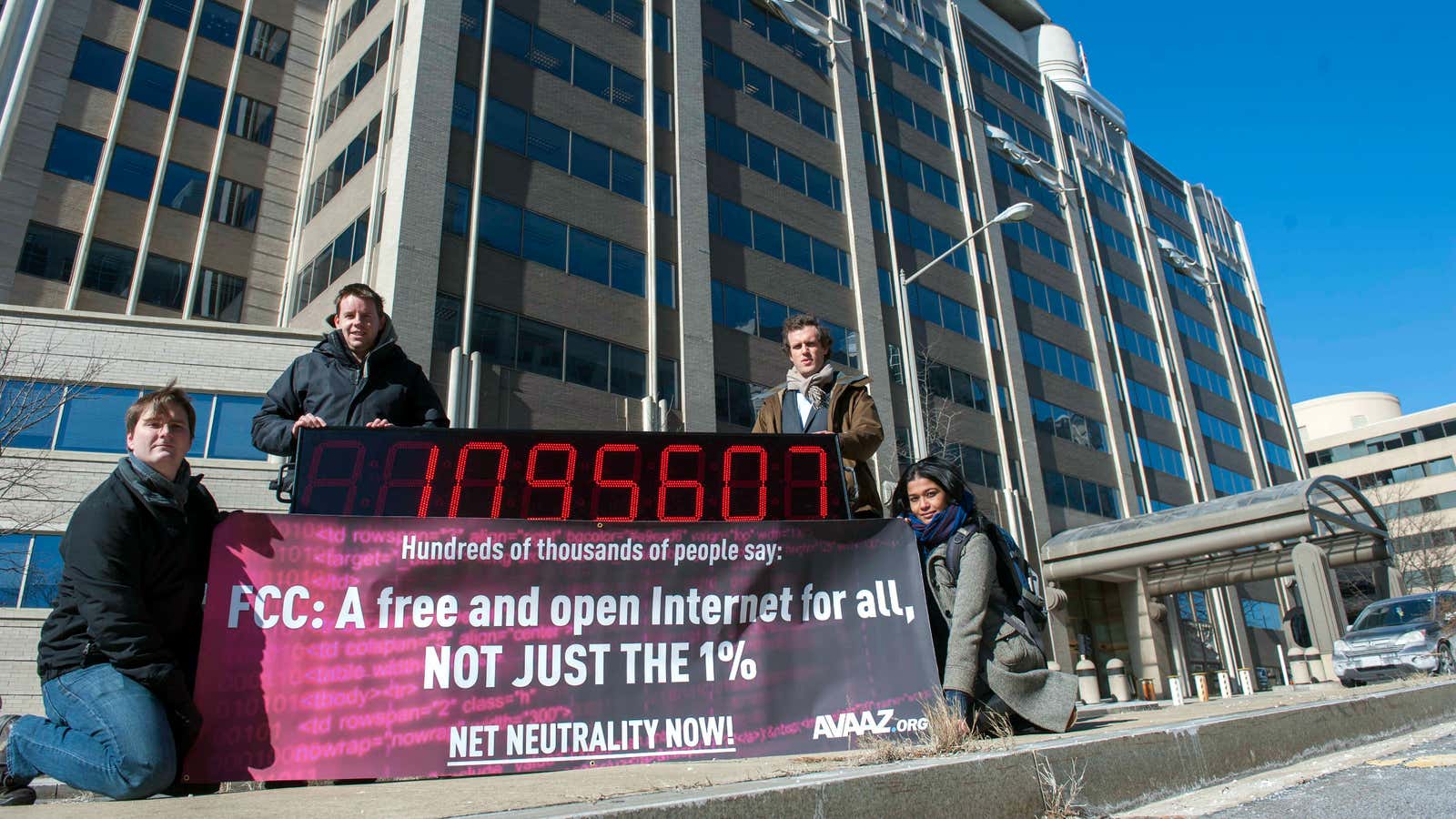A month after US courts rejected a bank-shot effort to force internet service providers to treat their traffic equally, Federal Communications Commission chair Tom Wheeler announced today a new plan to enforce net neutrality.
The agency plans to use new authorities recognized by the court when it struck down their previous effort after a challenge from telecom Verizon. Today’s statement represents a new step toward open internet rules, while falling short of reclassifying broadband providers as “common carriers” that should be regulated like utilities providing public goods, which is, of course, the last thing those firms and their shareholders want—and the main demand of many open internet advocates.
The new effort to deploy so-called “Section 706” authority is not without risk. Berin Szoka, president of the libertarian non-profit TechFreedom, says that the FCC can use its authority so effectively under the statute that reclassifying broadband providers is unnecessary—and he worries the statute could expand to regulate a much wider variety of internet companies. April Glaser, a spokesperson for the Electronic Frontier Foundation, the San Francisco-based open internet organization, worries that Section 706 rules could just be defeated in court again, further muddying the water, and that they could empower ISPs to discriminate against traffic that might appear to violate copyright but is in fact fairly used.
The rule-making to enforce these principles will drag out over months of public debate—and possibly years of litigation to follow if companies challenge them. Wheeler called for transparency around practices used by companies such as Time Warner Cable, Comcast and Verizon to manage internet traffic, and rules to prevent content and services from being blocked by ISPs. Wheeler, a former cable industry lobbyist, has faced skepticism from advocates for net neutrality, including public interest groups and companies such as Netflix that rely on distributing high-bandwidth content over the internet.
This decision could have a big effect on two major stories we’re following:
The rise of the cord-cutters
Netflix warned shareholders of a “draconian scenario” absent the enforcement of net neutrality, where internet service providers impede the company’s video streams in exchange for higher fees. Such a move would put its business model in peril, but this new proposal suggests that the government doesn’t want that to happen.
The Comcast-Time Warner Cable merger
The proposed union of the two largest broadband providers in the country already raises questions about the consumer experience on the internet. The net neutrality proposal could show the FCC’s hand two ways: It suggests Wheeler is interested in actions that protect consumers, which might be a sign his agency could put a kibosh on the tie-up. But Wheeler may see strong net neutrality rules as sufficient protection for consumers, so that he could safely give the go-ahead to the deal.
